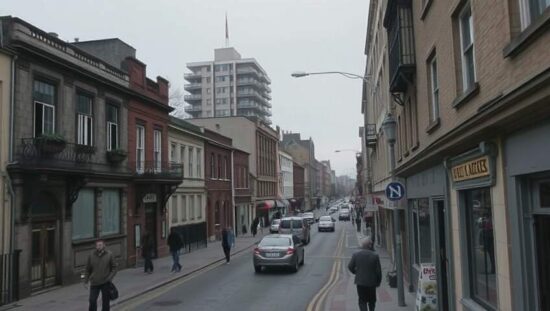The escalating debate surrounding urban decay and perceived safety concerns in German cities has seen an unexpected alignment between left-wing politician Sahra Wagenknecht and calls from the Social Democratic Party (SPD) for a summit at the Chancellery to address the issues. Wagenknecht, leader of the “Die Linke” party, voiced her support for the proposed gathering, acknowledging the visible deterioration of numerous districts. She pointed to increased litter, rising crime rates and a growing avoidance of certain areas, particularly amongst women, as undeniable realities.
However, Wagenknecht’s assessment swiftly pivoted to a pointed critique of the established political order. She attributed the current state of affairs to a confluence of factors, including “failed migration and integration policies, as well as burgeoning poverty and municipal indebtedness” placing primary responsibility on the conservative CDU/CSU (Union) and the SPD. Her accusation highlights a deepening rift within German politics, particularly regarding the complexities of integration and urban well-being.
The Union faction has vehemently rejected the proposal for a city-image summit, with parliamentary director Steffen Bilger dismissing it as unnecessary. Bilger accused proponents of deliberately misinterpreting conservative leader Friedrich Merz’s perspective and criticized a recently unveiled eight-point plan as a simplistic attempt to gloss over the underlying issues. Rather than a summit, Bilger suggested a continuation of existing collaborative efforts between the Union and SPD, focusing specifically on resolving challenges related to migration and fostering successful integration.
Bilger’s rejection and call for continued, albeit undefined, collaborative work underscores a reluctance within the established conservative bloc to engage in what might be perceived as a politically charged and potentially damaging public discussion about the shortcomings of current policies. This resistance, coupled with Wagenknecht’s sharp critique and the SPD’s initiative, signals a potentially significant shift in the discourse surrounding urbanization, migration and social cohesion in Germany, potentially forcing a more critical and potentially uncomfortable examination of long-held political assumptions. The underlying question remains: can a genuine and productive dialogue occur without assigning accountability and confronting the often-uncomfortable truths about the current situation?





